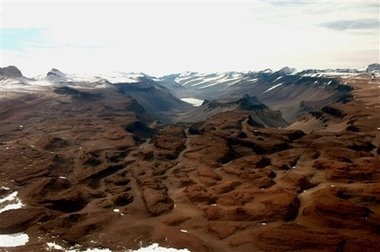State gets $2 million in drought relief
Drought has approached records in many parts of the country, where conditions have been driest from May through June since 1988.
The drought peaked two or three weeks ago, Agriculture Department meteorologist Brad Rippey said. Some places have gotten rain recently, but not enough.
“The rains came too late for summer crops,” Rippey said. “It takes pastures and rangeland a long time to recover from such a serious summer of heat and drought. So we’re just now beginning to see some of the pastures to green back up a little.”
Johanns outlined the $780 million in drought aid:








